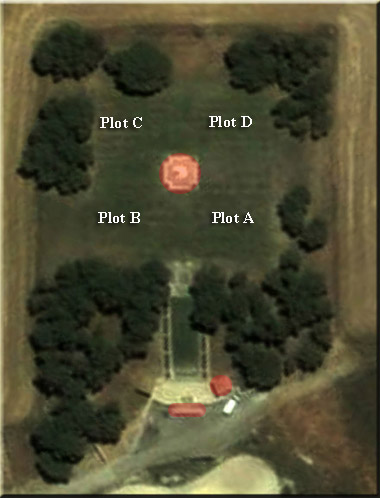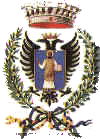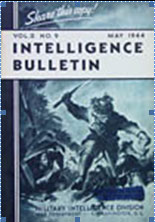













Regiment: Fallen Men



It's a Project of
1° Institute
“ M. BARTOLO “
Pachino
(Sicily)

© 2009
All Rights Reserved
The war graves of all nations must be preserved - as a reminder to keep peace, as a call to comunication and reconciliation for all the people.
Visit
Visiting Information::
The cemetery is steeply terraced with numerous steps, making wheelchair access to this site impossible. The cemetery is permanently open and may be visited anytime.
Location Information:
Agira Canadian War Cemetery lies in the Commune of Agira, Province of Enna, in the centre of Sicily. From the autostrada A19, Catania-Palermo, take the exit to Catenanuova. Follow signposts to Regalbuto, then pass Regalbuto, going in the direction of Agira. The Cemetery is then signposted about 12 kilometres from Regalbuto. Alternatively, leave the A19 at Agira and the cemetery can be seen from this exit. Cemetery address: Contrada Pennino Buterno, 2 - 94011, Agira (EN), Sicily. GPS Co-ordinates: Latitude: 37.6549115, Longitude: 14.55086
Historical Information:
On 10 July 1943, following the successful conclusion of the north African campaign in mid May, a combined allied force of 160,000 Commonwealth and American troops invaded Sicily as a prelude to the assault on mainland Italy. The Italians, who would shortly make peace with the Allies and re-enter the war on their side, offered little determined resistance but German opposition was vigorous and stubborn. The campaign in Sicily came to an end on 17 August when the two allied forces came together at Messina, but failed to cut off the retreating Axis lines. Agira was taken by the 1st Canadian Division of 28 July and the site for the war cemetery was chosen in September for the burial of all Canadians who had been killed in the Sicily campaign. Agira Canadian War Cemetery contains 490 Commonwealth burials of the Second World War.
No. of Identified Casualties: 484
German soldier tells of the battle for Agira
[from Intelligence Bulletin, Vol. II, No. 9, May 1944 ]
Introduction
On 27 July 1943, after overcoming strong German resistance,  British and American troops reached positions overlooking the town of Agira in Sicily. The following day the United Nations forces continued to bring pressure to bear from the northeast and northwest. In the evening of 28 July, Agira was captured. A substantial number of prisoners was taken, and many German dead were found.
British and American troops reached positions overlooking the town of Agira in Sicily. The following day the United Nations forces continued to bring pressure to bear from the northeast and northwest. In the evening of 28 July, Agira was captured. A substantial number of prisoners was taken, and many German dead were found.
On the 29th a private first class of a Panzer Grenadier unit, which had retreated from Agira to a new position several kilometers away, wrote a brief summary of the action at Agira. U.S. junior officers and enlisted men should find this narrative informative and useful, since it discusses the engagement from the point of view of an enemy infantryman.
Action at Agira, as a german saw it
For the past two weeks we have been fighting on Sicilian soil. The battle we fight here against British and American troops is tough. Since the fighting is taking place in mountainous, semi-tropical country, we are experiencing special conditions of terrain and climate to which we are not accustomed.
A few days ago, we were still in position on a tactically important height in front of the town of Agira. From this height the road to Agira could be controlled. The town itself had not yet been subjected to fire. However, the British and Americans realized the importance of this town, and made every effort to defeat us in order to occupy it.
Although we were able to hold our position for several days, we were not strong enough to resist indefinitely. Also, the hostile forces had at their disposal an unexpectedly large number of heavy weapons, which assaulted us day and night. With this support, the enemy succeeded in penetrating our positions at certain points during the night and crushing the front line. We then withdrew to the town of Agira, in order to preserve our strength and avoid unnecessary casualties.
There we were able to reorganize and make ready for further defense. Positions were prepared, manned, and improved. We of course expected a new attack by the hostile forces; however, for the time being, the enemy sent out only small forces for reconnaissance. He was being rather careful, and perhaps did not want to sacrifice troops unnecessarily. During this period each side tried to find out as much as possible about the other's positions and strength. Every so often, heavy weapons participated.
Only after some time did our patrols discover that the British and Americans, exploiting favorable approach possibilities under cover of darkness, had occupied several hills close to the town. Our forces staged counterattacks... but not until it was too late did we discover that it was the opposition's intention to bypass the town and block the routes of approach. Here and there, hostile tanks suddenly appeared, light personnel carriers came forward, and hostile artillery placed its "magic fire" [Feuerzauber] closer and closer to our positions. Our casualties and weapon losses increased, and our situation became more and more critical. Since our supply routes were under the steady fire of heavy artillery, we were able to bring up rations and ammunition only in greatly reduced quantities and under cover of darkness.
The situation grew still worse when the hostile forces attacked the battalion echeloned on our right, and forced it back close to the town. The most severe fighting therefore took place near the western entrance to the town, where the attacking forces were strongest. The opposition was able to gain successes at certain points, although suffering losses.
Our defensive line was still intact. We had hoped that we might be able to break contact with the hostile forces after delaying them by house-to-house fighting. Unfortunately, we were prevented from using these tactics, inasmuch as we received an order to the effect that the town must be held for another 24 hours. Now the word was "Hold at any cost." We realized that .the coming night would bring the crisis, upon which everything would depend. It came and passed—more quietly and better than any of us had expected. The British and Americans had penetrated only into the western part of the town, evidently moving with caution, and had established themselves there. We moved around the town, and occupied the northern entrance at dawn. The enemy tried to interfere with this tactical undertaking, but we placed sufficient fire on the attackers to force a withdrawal. We anxiously waited for night to fall. It was our intention to lose contact with the opposition after dark, since our delaying mission had been completed. All day long, every one of us wondered whether the opposition would remain inactive until nightfall and how everything would develop.
At dusk we made our preparations. Evacuating Agira as silently as possible, we made a night march of several kilometers, under very uncomfortable conditions, and took up a new position, where we are at present. It is on a steep hill, and is roughly opposite the same town for which we were fighting so bitterly only yesterday. Looking at it, we have only one thought and hope: to halt, weaken, and defeat the advancing enemy.

In memory of their sacrifice.

